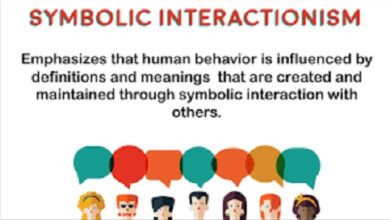What is Second language
What is Second language
A second language (L2) is any language learned after the first language or mother tongue (L1). It is not necessarily a language being numbered in the order in which it is acquired – the term ” second ” stands for what is distinct from the mother tongue. Unlike the concept of Foreign Language, a non-first language is one acquired under the need for communication within the socialization process.
The acquisition of a L2 and the acquisition of a Foreign Language are similar to the fact that they are developed by individuals. who already have speaking language skills, that is, by someone who has other cognitive and thought-organization assumptions than those used for L1 acquisition. A differentiation between these two forms of non-native language acquisition is fundamentally based on already mentioned SL’s role or function in the speaker’s culture ”.It is quite possible that the first language one learns may no longer be their dominant language, and their second language may be the most comfortable to use. For example, the Canadian census defines first language as “the first language learned in childhood and still in use”, recognizing that for some the oldest language can be lost in a process known as linguistic friction . This can happen when the young child goes, with or without his family (due to immigration or international adoption ), to a new language environment.
Benefits of learning L2
1. Growth of the mind
The fact that language centers in the brain grow is actually one of the main benefits of learning a L2.
Costa says that “it seems that there are areas that have more gray matter, more neuron density, in people who speak two languages. Just as a tennis player develops muscle, speaking languages is a mental gymnastics. Bilingualism sculpts the brain « .
2. Avoid dementia
Bilingualism delays Alzheimer’s disease in susceptible people for up to five years. It seems incredible, but studies continue to support this result.
To put this in context : the effect on dementia of learning another language is much greater than anything that can be achieved with the latest medications.
3. Hear better
Being bilingual can lead to improved listening skills , since the brain has to work harder to distinguish different types of sounds in two or more languages.
4. Be more sensitive to learn more languages
Babies who are raised in bilingual homes can distinguish languages that they have not even heard before.
Only exposure to different sounds in, for example, Spanish and Catalan, helps them establish the difference between English and French. It is another benefit of learning a second language.
5. Memory expansion
Babies raised in a bilingual environment have a stronger working memory than those raised with only one language.
This means that they are better for mental calculation, reading and many other vital skills.
6. Be better at multitasking
Bilingual people can switch from one task to another more quickly . They show greater cognitive flexibility and find it easier to adapt to unexpected circumstances.
7. Greater attention
Bilinguals have more control over their attention and are better able to limit distractions. Being accustomed to changing languages improves the ability to concentrate when doing a task «.
8. Increased cognitive ability
The increase in cognitive , such as improved attention and better multitasking, may come because bilingual people have both languages activated at the same time, and must continuously monitor which one is appropriate. All that confers round-trip switching are the benefits of learning a second language. The research team of Professor María Teresa Bajo, from the University of Granada, showed that bilingual students are more efficient in coordinating different cognitive control mechanisms .
9. New ways of seeing things
Learning a new language can literally change the way you see the world.
Learning Japanese, for example, that has basic terms to describe colors (colors are proper names of people, male or female, for example: Midori (green and girl’s name)), can help you perceive color in different ways .
10. Improve your first language
From learning a second language, draw your attention to the rules and structure of abstract language, which can make you better in your mother tongue.

